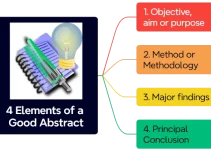This article is a reaction paper on the article written by Robert Arnove, Alberto Torres, Stephen Franz, and Kimberly Morse in 1996. The article is entitled, “A Political Sociology of Education and Development in Latin America: the conditioned state, neoliberalism, and educational policy.” The article seemed old and happened in Latin America, but the issues are important and relevant to other countries. In this article, I describe the situation of the Philippine educational system in relation to that in Latin America. If you are interested to know more about the relationship between issues on education and development, please read on.
As I scrutinized the article on the political sociology of education and development, I found many similarities to what were, and what are happenings in the Philippine educational system. There is a strong relationship between the kind of government and the system of education that a country can have. I expound more on the following discussion.
The Philippines, as a conditioned state, needs to protect itself from many internal and external threats; thus, placing more budget in the military than health care and social and humanitarian services like education. In effect, many teachers and other professionals flew abroad seeking for greener pasture. As a result, the country faces the brain-drain effect. Highly trained or intelligent people emigrated somewhere else. If the government is serious about addressing this problem, then it has to ally with different groups of society that would influence its actions in legislating and executing social policies.
Likewise, neoliberalism significantly affects the Philippine educational system because World Bank and International Monetary Fund (IMF) favored the two policies of privatization and decentralization for improving educational efficiency. Neoliberalism involves prioritization of the price mechanism, the free enterprise, the system of competition and a strong and impartial state.
In my personal opinion, the World Bank and IMF are right in setting up such policies because that would lessen the budget deficit of any developing country. However, many will be suffering from those consequences particularly the poor and the needy.
Though setting such policies is favorable to the state, the class C and D of the society will become more inadequate; thus, widening the gap between the poor and the rich. World Bank and IMF are like businesspeople who would like to earn profits from developing countries.
Well, being businessmen is not bad at all. They also have good intentions but the problem is, there are many corrupt government officials who use the money to protect their vested interests rather than to invest in worthwhile projects.
Thus, quality education in the country is only for the rich who can afford to pay tuition fees in private schools. Public schools have lacked textbooks and qualified teachers who could inspire students to do better in their academics. School facilities and buildings are not well-maintained. There were strikes by teachers to increase the salary; and from the students, not to raise their tuition fees.
Nonetheless, there are non-government organizations that help the poor climb from their status or the so-called social mobility. They were taught to read and write. Moreover, it is happy to note that a Filipino is awarded for sharing his knowledge with street children thru mobile classroom.
The problems of education are perennial by nature. Maybe, initiatives should not just eradicate problems in class size, tuition fee increase, poor and ineffective teachers. There are simple ways and selfless individuals who can bring change in the society.
My wish is to have a government that can give free, quality education to every individual.
Reference:
Arnove, R., Torres, A. Franz, S., Morse, K. (1996). A political sociology of education and development in Latin America: the conditioned state, neoliberalism, and educational policy. Retrieved from https://www.questia.com/library/journal/1G1-18601143/a-political-sociology-of-education-and-development



Hello, again! Thank you for giving your insights! You are right, the bottom line is the government and our leaders. Hmmm, you have brilliant ideas and I would like to encourage you to write or contribute your articles here in simplyeducate.me . I’m sure you can help us a lot.
Hi Mary,
Thank you for the complement, sure I’d love to.
Sir Patrick and I are looking forward for your contribution. Please help us in sharing our knowledge to the next breed of leaders in education. Thank you.
Hi Mary,
Another great article Mary, Indeed what you said is true but the real problem lies in the government itself, as long as the person sitting that particular position is rotten and corrupt then the followers will also become corrupt, because they will be swallowed by that kind of system. This kind of system gave birth to the poor educational system that in public schools and universities. The one who is responsible in making our country rot are those corrupt and rotten leaders.
Thank you for sharing another great article.